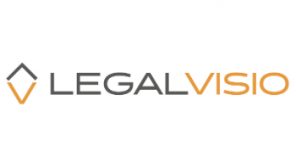Dr Bernhard Fiedler is a banking lawyer based in Frankfurt. He specializes in debt financing transactions (including acquisition finance and corporate loan transactions) as well as banking supervisory law. He has advised banks, financial sponsors and corporates on various acquisition finance, real estate finance and corporate loan transactions, as well as recapitalizations and restructurings. He is part of our internal legal tech community, a legal tech innovator, has been instrumental in building several automation tools for a number of innovative products and regularly speaks at conferences and events and publishes articles on legal tech and legal innovation. Bernhard studied law at the Johann Wolfgang Goethe-University in Frankfurt am Main, Germany where he also was awarded a doctorate for his thesis on banking and insurance supervisory law. Furthermore, he holds an LL.M. in commercial law from the University of Cape Town, South Africa.
Bernhard, thanks for taking the time. It’s a real pleasure to have you here on the Legal Tech Blog. First of all, tell us a little bit of your background.
I am a senior associate in the banking team of Norton Rose Fulbright where I advise mostly on syndicated loan transactions. Also, I am one of the three co-organizers of the Legal Tech & Innovation Forum as well as an advisory board member of the Legal Tech Lab, both of which are in Frankfurt.
I grew up in one of Frankfurt’s suburbs and later studied law at Johann-Wolfgang Goethe University where I also did a Ph.D. Part of my studies also included an LL.M. at the University of Cape Town, South Africa where I focused on commercial and international trade law.
My first computer had a 486 DX4 100 (Cyrix, not Intel) processor, 16MB RAM, 500MB hard drive and a double speed CD ROM. For an 80s kid, I was rather a late adopter buying my first PC in the mid-90s from money saved from some holiday job. I was fascinated of by the hardware and the first thing I upgraded was a Creative Labs Sound Blaster sound card as the onboard speaker only had a horrible sound. I remember our first LAN sessions (a predecessor of later online gaming). I got my first impressions of the Internet around 1999 and incurred a giant bill from some browsing (you had to pay by the minute, flat-rates were not invented yet). Frankfurt’s Goethe University was among the early providers of WiFi networks in the first years after 2000 and I toured the city looking out for open networks with free internet. I switched from PC to MAC in 2007 and got my first iPhone (2G) in mid-2008 (about a week before the 3G was launched, a severe case of bad timing). Lately, I have become a huge fan of Alexa although my wife remains a skeptic on AI.
How and when was your first encounter with the word Legal Tech?
During my study time, we had a tutor for criminal law who taught criminal law basically as some sort of if/then logic. This was an enlightened approach and from that moment on, I believed that law and technology could be combined. Later on (Legal Tech was still not a common term) I was involved in a lot of brainstorming with Michael Grupp (founder of Legal Tech provider BRYTER) on the opportunities for expert systems and document automation in legal services.
What promise does Legal Tech hold for you?
I believe that it will change the future of law and the legal profession. The application of technology in law could provide for less ambiguity, more certainty and greater access to justice. However, for the foreseeable future, there will be incremental steps rather than one seismic disruption. I believe Legal Tech will also change the business model of legal advice and pricing..
How did you get started with Legal Tech? What was your initial knowledge source? Can you explain the first specific steps you took?
My traditional work also includes the administration of our banking know-how, mainly the maintenance of our various templates. That proved to be rather fruitful as standardization is one of the prerequisites for later automation. When I first learned that the firm had access to Neota Logic (a no code logic platform which allows you to build expert systems) I contacted the project team and asked whether I could see how it works. I got a license and started to build my first legal apps. When I had built the first few apps (all basically minimum viable products (MVP)) I started to show these to colleagues and collected feedback. The MVPs proved to be a huge help in convincing the right people to get more resources in order to build more complex tools.
How was your Legal Tech journey perceived in your law firm?
I would totally describe Norton Rose Fulbright as an innovation-focussed firm. One of the firm’s global change and innovation initiatives, NRF Transform, is evidence of that. The MVP approach was very helpful as it helped to get people on board. Instead of asking for a big budget for some vague idea, the decision makers had a chance to experience how a solution could look like and what is possible. We have a great network of legal tech enthusiasts within and outside of the firm. It is exciting to be part of a truly international team that works on solutions to deliver legal advice in new, exciting and efficient ways.
Tell us a little bit more how you use Legal Tech in your day-to-day business
There are many ways in which Legal Tech is growing in significance and the firm continues to innovate. One notable example is the launch by Norton Rose Fulbright of one of the first artificial intelligence-powered data privacy chatbot that responds on whether non-EU businesses are subject to the EU GDPR.
I am working on two types of solutions, internal facing ones and external client focused solutions. The background of most of our internal facing solutions is our aspiration to become more efficient. Most of my time I am advising in the context of syndicated loan transactions which involves a lot of drafting work. One of the first tools I developed was a document automation solution for our so-called CP documents (a set of short documents like shareholders resolutions, directors certificates and PoAs). Because these documents at least partially require the same information, where in the past you had to create one document after the other, you can now create a whole set of documents based on the same input. Another tool allows my more junior colleagues to quickly assess whether a legal opinion (the content of which depends on various facts) includes all statements which are required by banks for paying out a loan. Lately, we have atomized our 150+ page LMA style facilities agreements which are rather complex documents. However, it turned out that complexity can be effectively dismantled and a process that used to take around a day now only takes around 20 minutes.
On the external solutions, we are sharing our legal tech experience and help our clients with tech solutions for their businesses. A few years ago we created a solution which helps our clients in determining whether a member of staff qualifies as freelancer or employee. I am currently working on a solution which helps clients to deal with the effects of consumer settlement-focused legal tech solutions.
What are the challenges you face when it comes to the practical usage and implementation of Legal Tech (tools)?
There are some challenges around how Legal Tech solutions, products and platforms can be implemented and possibly combined. Furthermore, there has been quite a substantial hype about legal tech over the past few years. But I believe legal technology can only improve efficiency and enables lawyers to focus on the provision of sophisticated, strategic advice. As with all new technology, a realistic approach is always helpful.
What advice would you give a law student striving for a successful career in law?
Regardless whether you strive to become an attorney or a judge or a Legal Tech lawyer, you need to be adaptable and highly disciplined – skills you need to develop at the university. You need to be able to deal with unforeseen situations and navigate unknown waters.
What is your goal for 2018 regarding Legal Tech?
I’m proud to work at a firm that values innovation so highly and I am keen to further contribute to the development and implementation of new services and products for clients.




